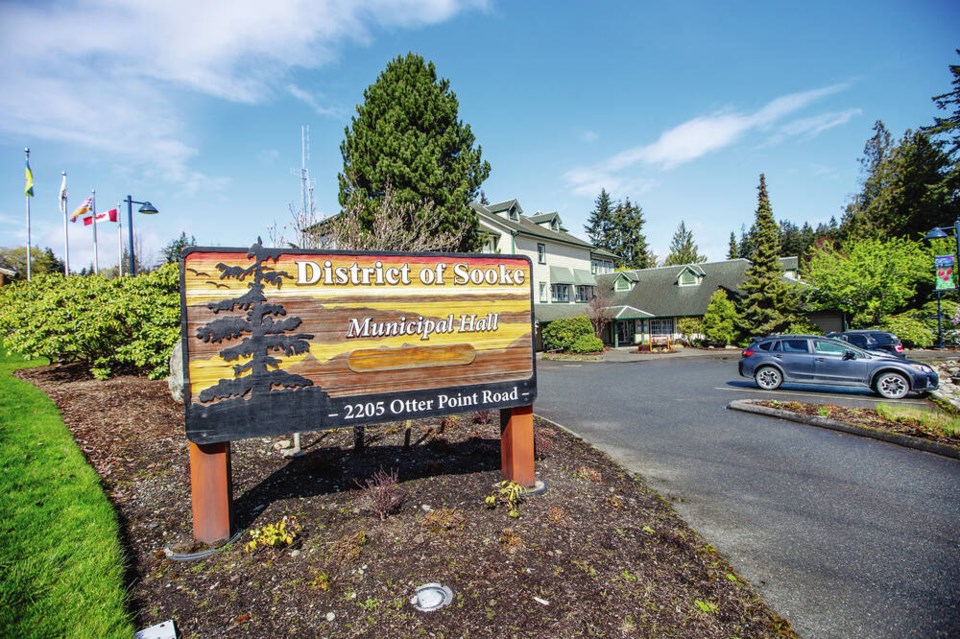Mike Menard is surprised at the number of people vying to be on Sooke council for the next term — even for a municipality where community involvement is a cornerstone.
The Sooke Chamber of Commerce president, whose organization represents about 170 businesses, puts it down to increasing interest in how — and how fast — the district is growing.
Twenty-three people have put their names forward for six council seats, while there are three candidates for mayor — incumbent Maja Tait, Mick Rhodes and John Knops — for the community of 15,000 people. That population number is up 16 per cent since 2016.
In the last municipal election, 13 people ran for council.
Menard said he believes growth is necessary, but not everyone shares that view.
“I’m a plumbing-and-heating contractor and make my living and my business out of growth, but there’s a lot of people out there that find that the municipality’s growing too fast.”
Tied to that is the prospect of expanding water-and-sewer infrastructure to the eastern portions of Sooke, he said. “There have been many discussions about areas for infrastructure over the last year but it’s all in talk,” said Menard, who also named traffic as a top local issue, although he notes that Highway 14 between Sooke and Langford is getting better due to recent improvements.
“One of the main issues in the district is the amount of vehicles that are all flowing through just one singular road,” he said, noting the route doesn’t just serve Sooke but Shirley, Jordan River and Port Renfrew.
“That traffic builds up on most nights from 3 to 6. I know the municipality is working diligently on other avenues, literally and figuratively, [for] rerouting traffic through the municipality.”
Bernie Klassen of Transition Sooke, which he described as a grassroots community group dedicated to “a sustainable, post-carbon future,” sees growth as the No. 1 election topic in the municipality.
While the amount of development is a big concern for some residents, others in the development community are “less than thrilled” at what they consider the slow pace of development permits being processed, he said.
Klassen said the high number of council candidates might be in part an effect of the COVID-19 pandemic.
“We’ve seen so much political action come out of the pandemic because people have five minutes to think about things,” he said.
“That’s why retired people get involved in politics, because they have time.”
While he sees the large number of council candidates as a positive thing, Klassen said he hopes those elected don’t break down into factions that cancel each other out.
If there are too many candidates who are strongly pro-development or anti-development, or disagree on other fundamental issues, “we could be facing gridlock,” Klassen said.
Klassen’s group, which has about 400 members, recently organized an event that featured candidates sitting at tables with up to five area residents, who had the opportunity to talk directly to each candidate for 10 minutes.
The candidates then switched to other tables so they could meet as many people as possible.
In a nod to the practice of speed dating, Transition Sooke calls it “speed rating,” Klassen said.
Camosun College political science instructor Dan Reeve said a large number of candidates in municipalities like Sooke can be overwhelming for voters, and name-recognition becomes very important. “Incumbents usually have a huge advantage.”
There are five incumbents on the Sooke candidate list, and with so many candidates to choose from, the incumbents could stand out even more, he said.
>>> To comment on this article, write a letter to the editor: [email protected]

